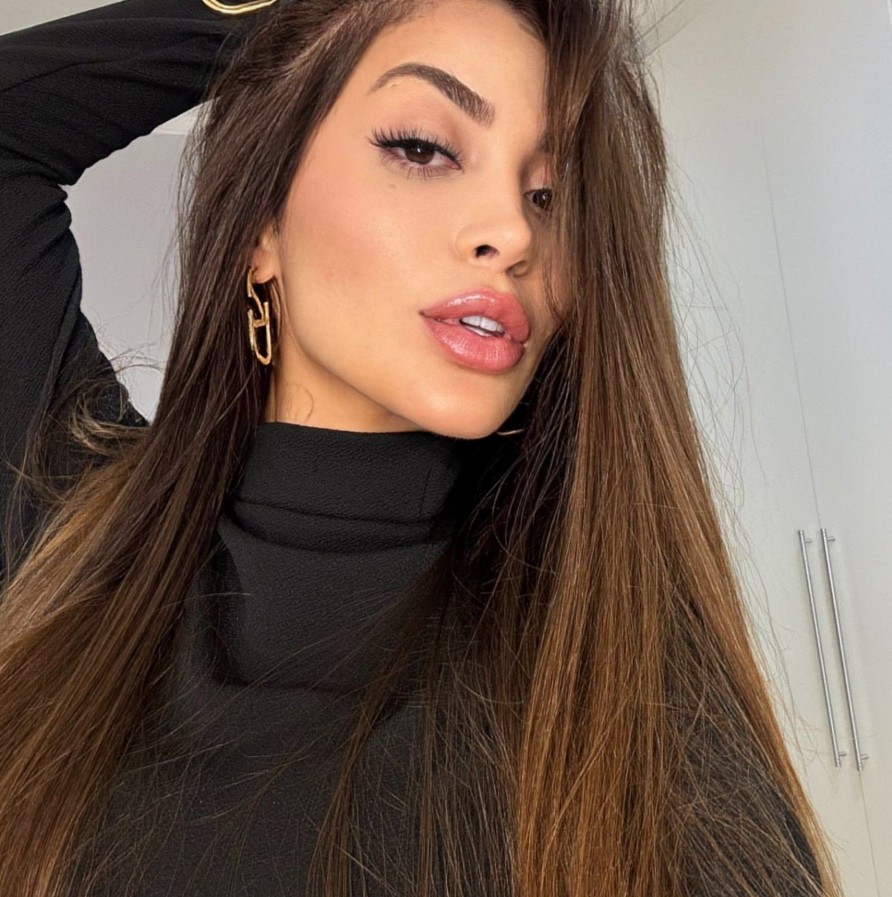Mari Ávila, a well-known Brazilian model and content creator, and MC Negão Original, a popular Brazilian funk musician, have recently found themselves at the center of a viral online controversy. The topic, widely referred to as the “Mari Ávila e MC Negão video”, has captured massive attention on social media platforms, sparking heated discussions and widespread curiosity among fans and the general public alike.

This article will delve into the details of this trending event, exploring the background of both Mari Ávila and MC Negão Original, the circumstances surrounding the video, the reactions from fans and media, and the broader implications for privacy, consent, and digital culture. By the end, readers will gain a comprehensive understanding of why this video became a viral sensation and how it has impacted the public image of the individuals involved.
Contents
The Mari Ávila e MC Negão Video Controversy
The Mari Ávila e MC Negão video controversy emerged when private videos involving Mari Ávila and MC Negão Original began circulating online, quickly capturing the attention of Brazilian social media users. The videos, originally intended for private purposes, reportedly featured personal interactions between the two public figures. Once leaked, they sparked immediate curiosity and debate due to the explicit nature of the content and the celebrity status of those involved.
The exact circumstances of the leak remain partially unclear, but social media platforms, particularly Instagram, Twitter, and TikTok, played a significant role in the rapid spread of the videos. Fans and influencers shared clips and screenshots, amplifying the controversy and pushing it into mainstream news outlets in Brazil. The viral nature of the incident was further fueled by the discussion around privacy, consent, and online responsibility, topics that resonate deeply with the digital community.
Mari Avila e MC Negão Video Leak Shocks Fans Worldwide
mari-avila-e-mc-negao-video-1.mp4
mari-avila-e-mc-negao-video-2.mp4
Both Mari Ávila and MC Negão Original publicly addressed the situation in different ways. Mari Ávila took to her social media to clarify her side of the story, highlighting issues of consent and emphasizing that certain aspects of the videos had been shared without her approval. She also posted responses that reflected her characteristic boldness, turning the incident into a moment of personal expression and media engagement.
MC Negão Original, on the other hand, responded with statements that expressed frustration over the leak and the public scrutiny. He released social media posts and even musical content referencing the controversy, demonstrating his discontent while also attempting to control the narrative. The clash of perspectives between the two artists contributed to ongoing discussions among fans and the wider public, keeping the topic trending for weeks.
This controversy not only showcased the powerful dynamics of celebrity influence on social media but also highlighted the challenges public figures face when private content becomes public, raising important questions about privacy, respect, and digital ethics.
Who Are Mari Ávila and MC Negão Original?
Mari Ávila is a prominent Brazilian model, content creator, and social media influencer. She first gained recognition for her work in the fashion and entertainment industries but later expanded her presence online, where she shares lifestyle content, modeling photoshoots, and exclusive behind-the-scenes updates with her followers. Known for her bold personality and unapologetic style, Mari Ávila has amassed a significant following on platforms like Instagram and TikTok, making her one of Brazil’s most talked-about digital personalities.
MC Negão Original is a popular Brazilian funk artist, recognized for his energetic performances and catchy tracks. He has built a large fanbase through his music and viral videos, often collaborating with other influencers and musicians in the Brazilian funk scene. MC Negão Original has become a household name in Brazil’s urban music community, and his presence on social media further amplifies his reach, engaging millions of fans across various platforms.
Both Mari Ávila and MC Negão Original hold a strong influence in Brazilian pop culture. Mari’s bold online persona and MC Negão Original’s musical charisma make them highly relevant figures in social media trends, viral content, and public discussions. Their collaboration or controversies, such as the viral “Mari Ávila e MC Negão video”, quickly attract widespread attention, highlighting the power and impact of influencer culture in Brazil today.
Legal and Ethical Implications
The “Mari Ávila e MC Negão video” controversy raised significant legal and ethical questions, particularly regarding privacy, consent, and intellectual property. Since the videos were originally intended to remain private, their leak without authorization sparked debates about the violation of personal boundaries and the responsibility of those who distribute sensitive content online. Both Mari Ávila and MC Negão Original highlighted concerns about consent, emphasizing that private interactions should not be shared without mutual approval.
While there have been discussions in the media about potential legal action, such as lawsuits or police involvement, publicly available information suggests that no formal legal proceedings have yet been confirmed. Nevertheless, the situation underscores the complexities of digital law in Brazil, where privacy breaches and unauthorized content distribution can carry serious consequences.
More broadly, the controversy has fueled conversations about consent and online content in Brazil. Influencers, artists, and the general public are increasingly aware of the ethical challenges associated with sharing personal or explicit material on social media. The incident serves as a cautionary tale about the importance of respecting privacy and obtaining clear consent before distributing digital content, especially when public figures are involved.
Impact on Careers
The viral controversy has had a notable impact on the careers of both Mari Ávila and MC Negão Original. For Mari Ávila, the incident reinforced her image as a bold and unapologetic influencer, which has attracted more followers and engagement across her social media channels. Her willingness to address the situation publicly demonstrated a level of media savvy that may enhance her brand and appeal in the long term.
For MC Negão Original, the leak presented reputational challenges. While some fans criticized him for the content and the public dispute, he also experienced increased visibility, with more people engaging with his music and online presence. The controversy highlighted the delicate balance public figures must maintain between personal privacy and professional image.
This situation offers valuable lessons for influencers and musicians in the digital age. It emphasizes the importance of managing private content carefully, understanding the potential consequences of leaks, and maintaining a clear strategy for responding to public controversies. Ultimately, the “Mari Ávila e MC Negão video” incident demonstrates how viral events can shape public perception, impact careers, and influence broader discussions about ethics and consent in the online world.
The “Mari Ávila e MC Negão video” controversy highlights the complex intersection of celebrity, social media, and digital privacy. From the initial leak of private content to the viral discussions it sparked, the situation illustrates how quickly personal matters can escalate into public controversies in today’s online environment. Fans, influencers, and media outlets all played a role in amplifying the story, while both Mari Ávila and MC Negão Original navigated the challenges of public scrutiny, reputation management, and audience engagement.
This incident also underscores the viral nature of online scandals, where content can spread rapidly, often beyond the control of those involved. It serves as a reminder of the ethical responsibilities of both creators and consumers in the digital space.
Ultimately, the controversy raises important questions for our increasingly connected world: How should private content be protected in the age of social media? And to what extent should public curiosity shape the lives and reputations of individuals online? These are pressing considerations for anyone engaging with digital culture today.

